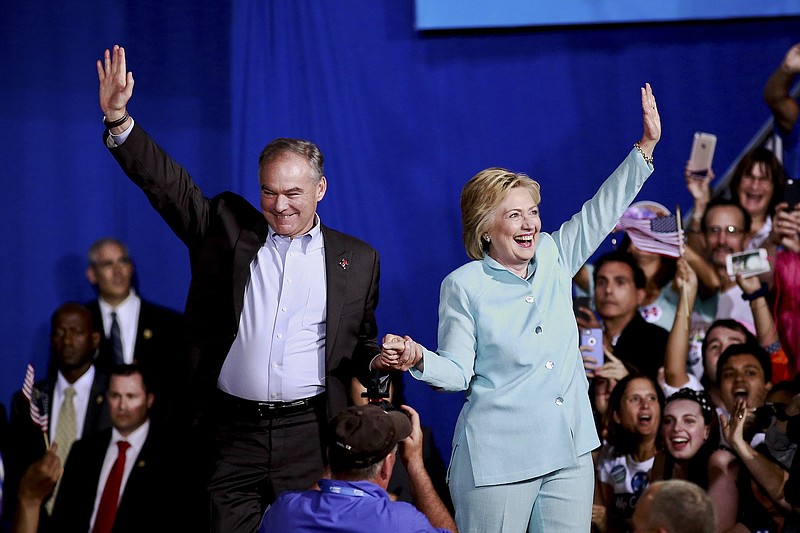Following last week's Republican calamity in Cleveland, the Democratic National Convention rolled into Philadelphia on Monday with big opportunities and big challenges.
Many Democrats will come with enthusiasm, but also with reservations.
Unlike the Republican Convention's speaker lineup, which was backfilled with Donald Trump's children because there were so few party heavyweights to anchor it, the Democratic Convention will have a litany of A-listers: The president, the first lady, Bernie Sanders and former President Bill Clinton among them.
These speakers will paint a vastly different picture of the country and its future than the unremittingly dark and dangerous one portrayed by the GOP.
But, all is not roses for the Democrats.
The presumptive presidential nominee, Hillary Clinton, has a battered image - partly due to a concerted effort by Republicans to batter it, and partly the result of her own poor choices. Two-thirds of registered voters don't believe that she's honest and trustworthy, and trustworthiness is one of those attributes that tends to be difficult to quickly and easily alter.
Clinton's honesty numbers are even worse than Trump's, but not by much. They both have some unbelievable negatives.
But, being about as bad as Trump is hardly a good thing. Trump is a horrible candidate who shouldn't have a shot, but in this race he does. Although Clinton remains the favorite to win in November, the race is too close for comfort. There are paths to victory - uphill though they may be - for Trump to win.
Too many voters find themselves in the worst possible position: They have a choice between a Republican of whom they are frightened and disgusted and a Democrat of whom they are leery and unenthused.
Last week Clinton had a chance to shake up the race with her vice-presidential pick, but instead she chose the safer route, choosing Democratic centrist Tim Kaine.
Kaine has his virtues, but this is not the sort of pick that taps into the progressive populism sweeping the party or the expansive diversity that constitutes the party.
Kaine reinforces Clinton's "steady hand" message, but that is a message, however valid and necessary, that's completely devoid of sizzle.
Trump is campaigning on fear, change and winning, all intense and even seductive ideas, even though his proposals are insular, unrealistic or hollow. "Steady" just doesn't have the same emotional appeal. And although I hate to boil a historic election and monumental policy challenges down to emotions, I've been around long enough to know this sort of visceral sensibility can swing elections.
The Democrats also have to deal with the resurgent idea of a primary process and party apparatus that favored Clinton and wasn't completely fair to Sanders.
This was reignited in the conversation last week when WikiLeaks released nearly 20,000 internal emails from the Democratic National Committee in which some officers expressed antipathy and outright hostility to Sanders.
No matter whom one supported during the primaries, or even what party one aligns with, this should turn the stomach.
CNN reported Sunday that in the wake of the scandal, the tainted party chairwoman, Debbie Wasserman Schultz, agreed to step down from her role at the conclusion of the convention.
But the injury is already inflicted.
These leaks further damage an already damaged faith in the Democratic nominating process. In March, the Pew Research Center found:
"Forty two percent of Republican voters have a positive view of the primary process, compared with 30 percent of Democrats. The share of Democrats expressing a positive view of the primary process has declined 22 percentage points (from 52 percent) in February 2008. Republicans views are little different than in 2000 or 2008."
What are those Democratic voters supposed to do who don't trust the candidate, the party or the process, even if they view The Donald as the Devil? This is one of the convention's conundrums.
The New York Times
